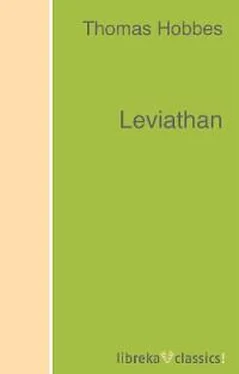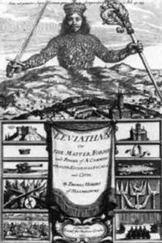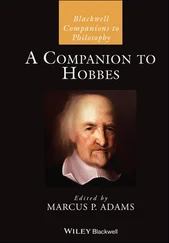Thomas Hobbes - Leviathan
Здесь есть возможность читать онлайн «Thomas Hobbes - Leviathan» — ознакомительный отрывок электронной книги совершенно бесплатно, а после прочтения отрывка купить полную версию. В некоторых случаях можно слушать аудио, скачать через торрент в формате fb2 и присутствует краткое содержание. Жанр: unrecognised, на английском языке. Описание произведения, (предисловие) а так же отзывы посетителей доступны на портале библиотеки ЛибКат.
- Название:Leviathan
- Автор:
- Жанр:
- Год:неизвестен
- ISBN:нет данных
- Рейтинг книги:5 / 5. Голосов: 1
-
Избранное:Добавить в избранное
- Отзывы:
-
Ваша оценка:
- 100
- 1
- 2
- 3
- 4
- 5
Leviathan: краткое содержание, описание и аннотация
Предлагаем к чтению аннотацию, описание, краткое содержание или предисловие (зависит от того, что написал сам автор книги «Leviathan»). Если вы не нашли необходимую информацию о книге — напишите в комментариях, мы постараемся отыскать её.
libreka classics – These are classics of literary history, reissued and made available to a wide audience.
Immerse yourself in well-known and popular titles!
Leviathan — читать онлайн ознакомительный отрывок
Ниже представлен текст книги, разбитый по страницам. Система сохранения места последней прочитанной страницы, позволяет с удобством читать онлайн бесплатно книгу «Leviathan», без необходимости каждый раз заново искать на чём Вы остановились. Поставьте закладку, и сможете в любой момент перейти на страницу, на которой закончили чтение.
Интервал:
Закладка:
Titel: Leviathan
von Augustus J. Thebaud, Charles Kingsley, Henry James, Thomas Hardy, Kate Douglas Smith Wiggin, Joseph Butler, John D. Barry, William Allan Neilson, Henry Rider Haggard, Rudolf Erich Raspe, Paul Heyse, Carl Russell Fish, Tom Taylor, Margaret Pedler, Homer, John Kendrick Bangs, John Burroughs, Juanita Helm Floyd, Maurice Liber, Anthony Trollope, William Morris, Mark Twain, Charles Dudley Warner, Thomas Hobbes
ISBN 978-3-7429-3092-7
Alle Rechte vorbehalten.
Es ist ohne vorherige schriftliche Erlaubnis nicht gestattet, dieses Werk im Ganzen oder in Teilen zu vervielfältigen oder zu veröffentlichen.
LEVIATHAN
By Thomas Hobbes
1651
LEVIATHAN OR THE MATTER,
FORME, & POWER OF A COMMON-WEALTH
ECCLESIASTICAL AND CIVILL
Thomas Hobbes of Malmesbury
Printed for Andrew Crooke,
at the Green Dragon
in St. Paul's Churchyard,
1651.
TRANSCRIBER'S NOTES ON THE E-TEXT:
This E-text was prepared from the Pelican Classics edition of Leviathan, which in turn was prepared from the first edition. I have tried to follow as closely as possible the original, and to give the flavour of the text that Hobbes himself proof-read, but the following differences were unavoidable.
Hobbes used capitals and italics very extensively, for emphasis, for proper names, for quotations, and sometimes, it seems, just because.
The original has very extensive margin notes, which are used to show where he introduces the definitions of words and concepts, to give in short the subject that a paragraph or section is dealing with, and to give references to his quotations, largely but not exclusively biblical. To some degree, these margin notes seem to have been intended to serve in place of an index, the original having none. They are all in italics.
He also used italics for words in other languages than English, and there are a number of Greek words, in the Greek alphabet, in the text.
To deal with these within the limits of plain vanilla ASCII, I have done the following in this E-text.
I have restricted my use of full capitalization to those places where Hobbes used it, except in the chapter headings, which I have fully capitalized, where Hobbes used a mixture of full capitalization and italics.
Where it is clear that the italics are to indicate the text is quoting, I have introduced quotation marks. Within quotation marks I have retained the capitalization that Hobbes used.
Where italics seem to be used for emphasis, or for proper names, or just because, I have capitalized the initial letter of the words. This has the disadvantage that they are not then distinguished from those that Hobbes capitalized in plain text, but the extent of his italics would make the text very ugly if I was to use an underscore or slash.
Where the margin notes are either to introduce the paragraph subject, or to show where he introduces word definitions, I have included them as headers to the paragraph, again with all words having initial capitals, and on a shortened line.
For margin references to quotes, I have included them in the text, in brackets immediately next to the quotation. Where Hobbes included references in the main text, I have left them as he put them, except to change his square brackets to round.
For the Greek alphabet, I have simply substituted the nearest ordinary letters that I can, and I have used initial capitals for foreign language words.
Neither Thomas Hobbes nor his typesetters seem to have had many inhibitions about spelling and punctuation. I have tried to reproduce both exactly, with the exception of the introduction of quotation marks.
In preparing the text, I have found that it has much more meaning if I read it with sub-vocalization, or aloud, rather than trying to read silently. Hobbes' use of emphasis and his eccentric punctuation and construction seem then to work.
TO MY MOST HONOR'D FRIEND Mr. FRANCIS GODOLPHIN of GODOLPHIN
HONOR'D SIR.
Your most worthy Brother Mr SIDNEY GODOLPHIN, when he lived, was pleas'd to think my studies something, and otherwise to oblige me, as you know, with reall testimonies of his good opinion, great in themselves, and the greater for the worthinesse of his person. For there is not any vertue that disposeth a man, either to the service of God, or to the service of his Country, to Civill Society, or private Friendship, that did not manifestly appear in his conversation, not as acquired by necessity, or affected upon occasion, but inhaerent, and shining in a generous constitution of his nature. Therefore in honour and gratitude to him, and with devotion to your selfe, I humbly Dedicate unto you this my discourse of Common-wealth. I know not how the world will receive it, nor how it may reflect on those that shall seem to favour it. For in a way beset with those that contend on one side for too great Liberty, and on the other side for too much Authority, 'tis hard to passe between the points of both unwounded. But yet, me thinks, the endeavour to advance the Civill Power, should not be by the Civill Power condemned; nor private men, by reprehending it, declare they think that Power too great. Besides, I speak not of the men, but (in the Abstract) of the Seat of Power, (like to those simple and unpartiall creatures in the Roman Capitol, that with their noyse defended those within it, not because they were they, but there) offending none, I think, but those without, or such within (if there be any such) as favour them. That which perhaps may most offend, are certain Texts of Holy Scripture, alledged by me to other purpose than ordinarily they use to be by others. But I have done it with due submission, and also (in order to my Subject) necessarily; for they are the Outworks of the Enemy, from whence they impugne the Civill Power. If notwithstanding this, you find my labour generally decryed, you may be pleased to excuse your selfe, and say that I am a man that love my own opinions, and think all true I say, that I honoured your Brother, and honour you, and have presum'd on that, to assume the Title (without your knowledge) of being, as I am,
Sir,
Your most humble, and most obedient servant, Thomas Hobbes.
Paris APRILL 15/25 1651.
Contents
THE INTRODUCTION PART 1 OF MAN CHAPTER I. OF SENSE PART 1 OF MAN CHAPTER II. OF IMAGINATION Memory Dreams Apparitions Or Visions Understanding CHAPTER III. OF THE CONSEQUENCE OR TRAYNE OF IMAGINATIONS Trayne Of Thoughts Unguided Trayne Of Thoughts Regulated Remembrance Prudence Signes Conjecture Of The Time Past CHAPTER IV. OF SPEECH Originall Of Speech CHAPTER IV. OF SPEECH The Use Of Speech Abuses Of Speech Names Proper & Common Universall Subject To Names Use Of Names Positive Negative Names With Their Uses Words Insignificant Understanding Inconstant Names CHAPTER V. OF REASON, AND SCIENCE. Reason What It Is CHAPTER V. OF REASON, AND SCIENCE. Reason Defined Right Reason Where The Use Of Reason Of Error And Absurdity Causes Of Absurditie Science Prudence & Sapience, With Their Difference Signes Of Science CHAPTER VI. OF THE INTERIOUR BEGINNINGS OF VOLUNTARY MOTIONS Motion Vitall And Animal Endeavour; Appetite; Desire; Hunger; Thirst; Aversion Contempt Good Evill Pulchrum Turpe; Delightfull Profitable; Unpleasant Unprofitable Delight Displeasure Pleasure Offence Pleasures Of Sense; Pleasures Of The Mind; Joy Paine Griefe The Will |
Интервал:
Закладка:
Похожие книги на «Leviathan»
Представляем Вашему вниманию похожие книги на «Leviathan» списком для выбора. Мы отобрали схожую по названию и смыслу литературу в надежде предоставить читателям больше вариантов отыскать новые, интересные, ещё непрочитанные произведения.
Обсуждение, отзывы о книге «Leviathan» и просто собственные мнения читателей. Оставьте ваши комментарии, напишите, что Вы думаете о произведении, его смысле или главных героях. Укажите что конкретно понравилось, а что нет, и почему Вы так считаете.












